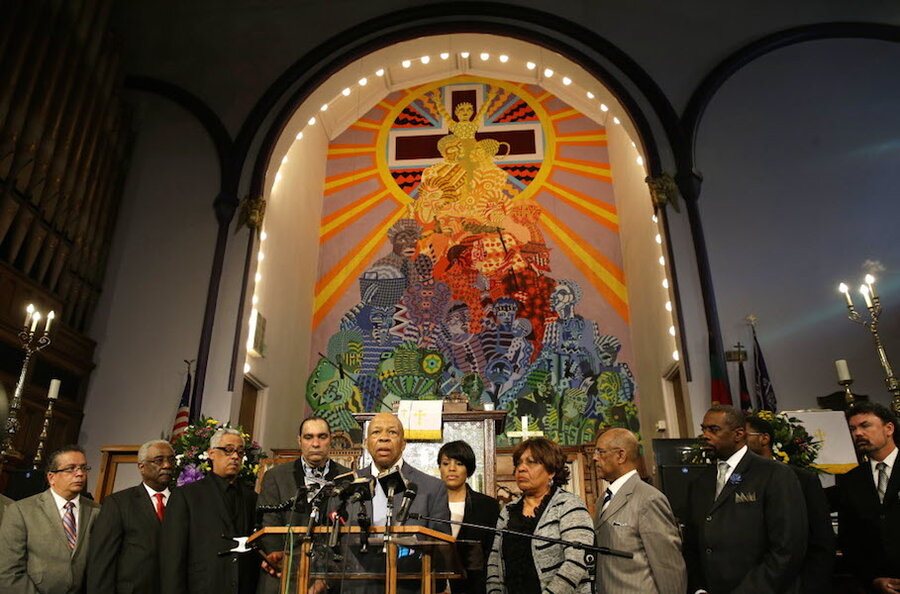For Baltimore post-riots, a role for clergy
By the Monitor’s Editorial Board
During the riots in Baltimore on Monday, two groups stood up against the violent protesters. There were the police, of course, even though they were the object of resentment for the death of Freddie Gray while in police custody. And there were a dozen or more local clergy members, both Christian and Muslim.
It is hard to know which group had the more calming effect. Mayor Stephanie Rawlings-Blake praised both. But the public presence of the clergy – despite the danger – only helps to highlight recent reforms in Baltimore that include police working closely with the faith-based community.
Two years ago, Police Commissioner Anthony Batts set up a “community partnership” division whose head, Lt. Col. Melvin Russell, is also a pastor. Mr. Batts said he wants police to work with religious institutions “to address brokenness, anger, neighborhood conflicts, poverty and crime within the City.” Police and faith leaders have often held events together, such as pairing up for rides in squad cars or handing out free meals.
If Baltimore is to repair its social fabric after the riots, clergy will need to be at the forefront. Two years ago, said Batts, the “cultural norms” of the police were very distant from community values. Back then, in a city of 600,000, some 100,000 people were arrested each year.
Police who engage well with community leaders can prevent and reduce crime. In March, a report by President Obama’s “Task Force on 21st Century Policing” stated that this sort of “informal social control ... is a much more powerful mechanism for crime control and reduction than is formal punishment.”
Baltimore’s police reforms since 2013 have brought a sharp drop in complaints about police discourtesy and excessive use of force. Yet the reforms were not deep enough to prevent the tragedy that sparked last week’s peaceful protests and then the riots. Many clergy members, some of whom worked as police chaplains, have called for further changes in the police department.
Baltimore has many stakeholders in curbing crime, from schools to politicians. It can be grateful that its clergy members are also involved, even working on the front lines of a riot.





